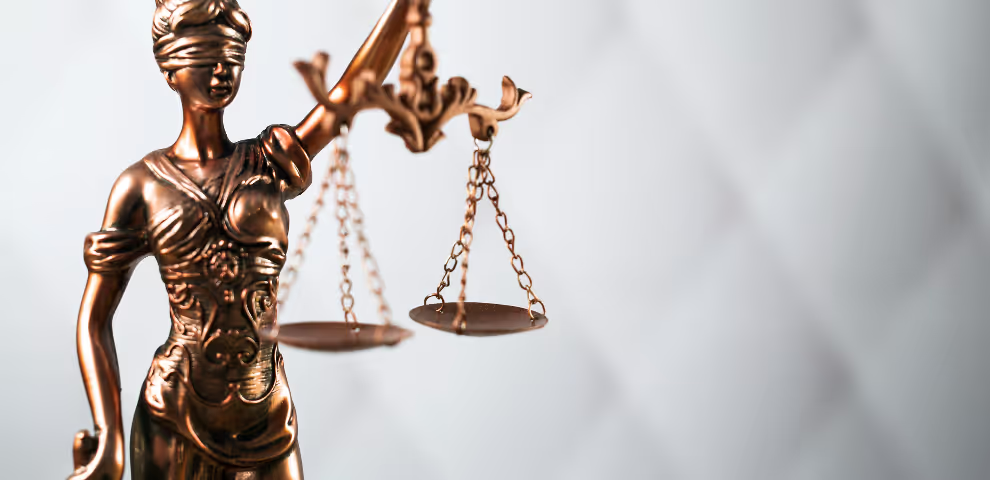Built for the Frontlines
of Legal Opportunity
Because the future of law isn’t reactive - it’s strategic.

.avif)
On February 11, 2025, a Judge Stephanos Bibas of the US District Court in Delaware issued a pivotal ruling on the intersection of copyright and artificial intelligence. In Thomson Reuters v. Ross Intelligence, Judge Bibas ruled that Ross Intelligence infringed Westlaw’s copyrights by using its headnotes to train its AI models.
This was the first US court ruling to directly address whether training an AI system on copyrighted material constitutes infringement and is going to influence how future courts interpret copyright in the context of AI.
The ruling makes clear that public accessibility does not automatically grant permission for reuse, particularly when it involves proprietary content used to develop commercial AI products.

Ross Intelligence launched in 2014 as one of the first legal research startups. Its pitch was a natural-language AI tool that let lawyers ask questions the way they actually speak.
To train its AI system to return relevant case law in response to user queries, Ross worked with a legal research and writing company called LegalEase. LegalEase created a dataset known as “Bulk Memos,” which paired legal questions with multiple plausible answers. In producing this training data, LegalEase directed lawyers to consult Westlaw’s headnotes, a set of editorial summaries highlighting legal principles from court decisions, as a reference point, but instructed them not to copy the text verbatim. The dataset also relied on Westlaw’s Key Number System, which categorizes legal topics and links users to cases discussing the same legal concept.
Thomson Reuters, which owns Westlaw, accused Ross of misappropriating its proprietary editorial content, alleging that Ross used the structure and substance of its headnotes and Key Number System to train its AI without a license. Although Ross attempted to obtain a license from Thomson Reuters, the request was denied.

On February 5, 2025, Judge Bibas issued a partial summary judgment for Thomson Reuters. The court found the following:
Although judicial opinions themselves are in the public domain, Westlaw’s headnotes are not. The court emphasized that these headnotes represent a creative synthesis of legal points, often combining multiple rulings into one summarized principle. That originality made them copyrightable.
The court held that:
“The creativity in distilling, summarizing, and organizing legal principles is substantial.”
Ross argued that its use was “transformative,” a key factor in fair use analysis, because it used the headnotes to train an AI, not to reproduce them directly. But the court rejected this, finding that:
Judge Bibas emphasized:
“Ross took the headnotes to make it easier to develop a competing legal research tool. That is, it used the headnotes for essentially the same exact purpose for which Thomson Reuters had created them—facilitating legal research.”
He also clarified that using copyrighted material to train an AI model is not automatically fair use, even if the resulting tool does not directly reproduce the original inputs. This marks a critical legal precedent: the court explicitly ruled that AI training is not exempt from traditional copyright analysis.
Read the court’s complete opinion here.

This case is a test for how courts will evaluate the legality of AI training across industries. It also contributes to the broader legal conversation about how AI and copyright law intersect, particularly when machine learning models are trained on proprietary or curated content without authorization.
Here’s why it matters:
Tech companies can no longer assume that any publicly viewable content is fair game for training AI. This ruling makes clear that copyright law still applies, even when content is used behind the scenes to train a model.
For companies training large language models or domain-specific AI tools, this introduces risk. They must now ask:
Until now, courts had not yet ruled on whether AI training qualifies as fair use. This decision is the first of its kind and it will be cited in virtually every future copyright case involving AI.
While some might hope for a future Supreme Court decision or new legislation that clarifies the rules, for now, this case is the strongest signal we have.
We may be entering an era of AI training licensing, where companies that own large volumes of high-value content, like Westlaw, become gatekeepers. If you want to train an AI on legal knowledge, you may need to pay to play.
At the same time, this may also open the door for open-source legal data initiatives and new efforts to create copyright-free training datasets that can help level the playing field.
Ross Intelligence shut down in 2021, citing the cost of ongoing litigation. That raises a serious question: How can AI startups focus on innovation if powerful incumbents control the training data? If even a novel, indirect use of content, like summarizing headnotes into memos, is considered infringement, where is the line?
Courts will need to strike a delicate balance between protecting creators and enabling innovation. This case begins that conversation.

As courts begin to define the boundaries of AI, copyright, and fair use, attorneys face a growing challenge: keeping up with evolving precedent while identifying new opportunities for litigation. These shifts demand faster, smarter ways to detect legal violations and build strong, evidence-based cases.
Darrow helps attorneys do exactly that.
Our Legal Intelligence Platform combines anomaly detection technology with legal expertise to identify patterns of unlawful behavior in large sets of publicly available data. Each potential violation is reviewed by experienced legal analysts to ensure the claims are grounded in real evidence and aligned with existing legal standards. Our legal experts then build data-backed class action and mass tort lawsuits, ensuring each case is strategically sound and litigation-ready.
Beyond case discovery, Darrow supports plaintiff firms throughout the litigation process. Our team collaborates with attorneys to develop claims, strengthen arguments, and prepare for procedural or substantive challenges. With access to data-driven insights and ongoing strategic support, firms are better equipped to take on high-impact cases with confidence.
We also provide a comprehensive plaintiff connection service, helping attorneys secure qualified, vetted plaintiffs while reducing the operational burden, costs, and risks involved in sourcing strong class representatives. Our plaintiff services team collaborates closely with partner firms to develop compliant outreach strategies tailored to each case and firm priority.
From initial outreach through final qualification, Darrow manages the entire intake process and remains a dedicated partner throughout, ensuring every class is supported by high-quality plaintiffs ready to move the case forward.
Whether you're focused on copyright infringement, privacy violations, or AI-related legal risks, Darrow provides the tools, technology, and partnership to help you move cases forward and deliver meaningful results.
Contact us to explore how Darrow can help you uncover violations, build cases, and grow your firm.
This Might Interest You: